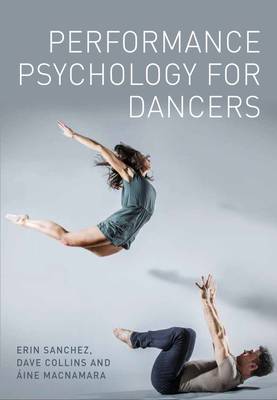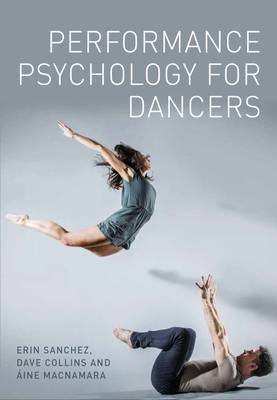
- Retrait gratuit dans votre magasin Club
- 7.000.000 titres dans notre catalogue
- Payer en toute sécurité
- Toujours un magasin près de chez vous
- Retrait gratuit dans votre magasin Club
- 7.000.0000 titres dans notre catalogue
- Payer en toute sécurité
- Toujours un magasin près de chez vous
Performance Psychology for Dancers
Erin Sanchez, Dave Collins, Aine MacNamara
Livre broché | Anglais
25,45 €
+ 50 points
Description
Professional dance careers are both highly rewarding and exceptionally challenging, so success as a dancer requires robust preparation. Performance Psychology for Dancers is an accessible and practical guide to talent development, offering dancers and those around them support to navigate the challenges of training and the psychological strategies that underlie success. As coaches, parents, and experienced practitioners themselves, the authors share their passion and expertise in talent development from experience working with in-training and professional dancers, athletes, and the military. Additionally, a variety of current industry experts provide key insights and reflections on talent development, mental health and psychological skills for performance.
- Goals: how aspiring dancers and those that support them generate and refine their thinking about what they want to achieve
- Talent: an introduction to talent identification and development pathways in dance, and factors talented individuals, parents or teachers can consider to ensure this crucial process delivers what is needed to reach the goals
- Early training: the broad range of skills that can be encompassed in early training to support future development and how to select the right training environment
- Mental health: supporting dancers' mental health, related to both performance and to life outside of dance
- Challenge: common barriers dancers may experience such as perfectionism, passion, fear of failure, identity foreclosure and the evaluative nature of dance education; and how such challenges are an important developmental tool on the young dancer's journey
- Thinking like a scientist: guidance on how to make decisions about talent development based on evidence and trustworthy advice psychological strategies that underlie success.
Spécifications
Parties prenantes
- Auteur(s) :
- Editeur:
Contenu
- Nombre de pages :
- 144
- Langue:
- Anglais
Caractéristiques
- EAN:
- 9781785007989
- Date de parution :
- 01-09-21
- Format:
- Livre broché
- Format numérique:
- Trade paperback (VS)
- Dimensions :
- 165 mm x 235 mm
- Poids :
- 308 g

Les avis
Nous publions uniquement les avis qui respectent les conditions requises. Consultez nos conditions pour les avis.






